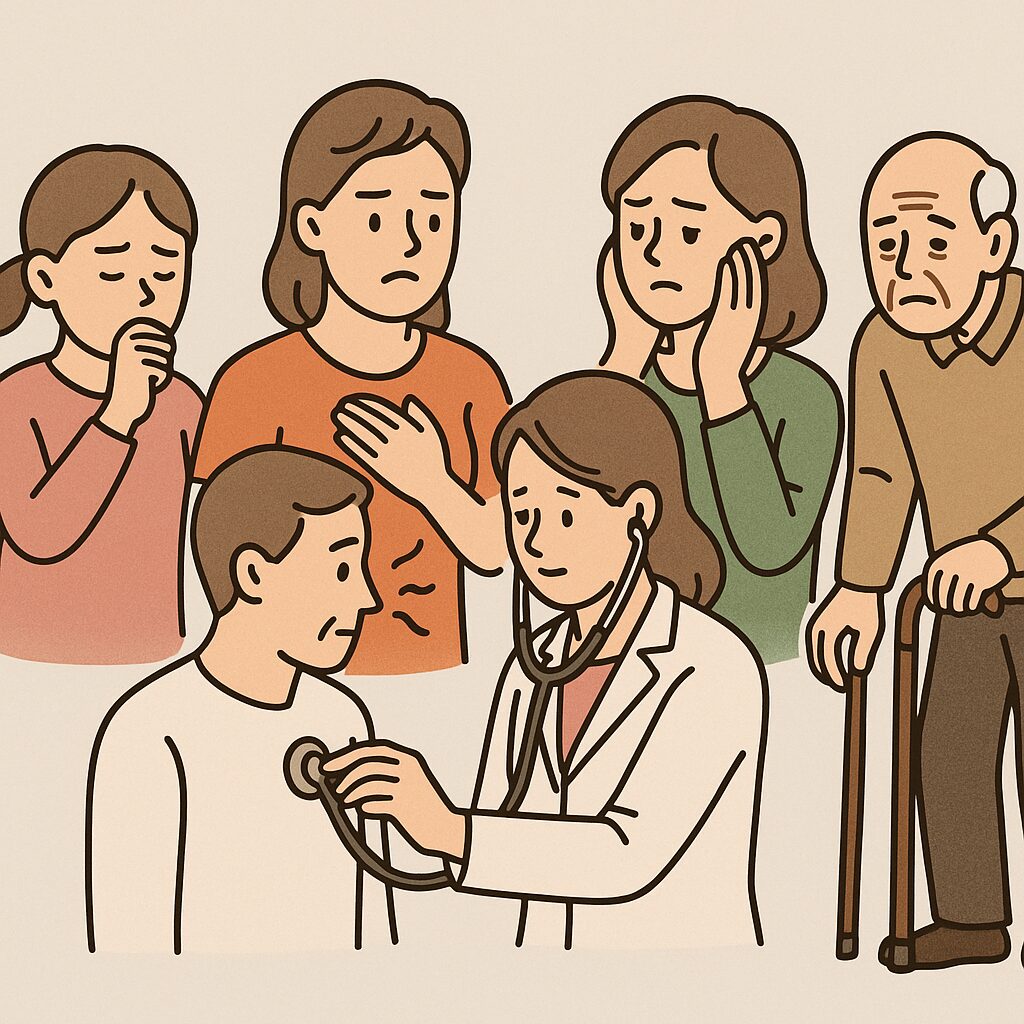Health risks shift with age, and different decades of life bring unique challenges. While some conditions may appear silently, early detection often increases the chances of successful management. This guide outlines major disease risks by age and explains why preventive checkups are essential.

1. 20s–30s · Lifestyle-Related Risks
Poor sleep, irregular meals, smoking, and heavy drinking may contribute to early signs of hypertension or diabetes. Stress can also affect digestion and mental health. Regular health checkups and healthy routines are recommended even at a young age.
2. 40s · Metabolic Syndrome and Cardiovascular Disease
Metabolism slows, leading to unstable blood pressure, glucose, and cholesterol levels. Metabolic syndrome may develop, raising risks for heart attack and stroke. Balancing work, family stress, and preventive screenings is crucial during this stage.
3. 50s · Rising Cancer Risk
The risk of cancers such as stomach, colon, breast, and prostate cancer increases in the 50s. Family history and lifestyle factors often play a role. Regular cancer screenings may help improve survival outcomes when diagnosed early.
4. 60s · Degenerative Conditions
Arthritis, spinal issues, cataracts, and Parkinson’s disease become more common. Reduced muscle mass and organ function may slow recovery. Early diagnosis and lifestyle adjustments may help maintain mobility and independence.
5. 70s and Beyond · Multiple Chronic Illnesses
Older adults often face overlapping conditions such as hypertension, diabetes, heart failure, and dementia. Coordinated care and consistent monitoring may help reduce complications.
6. Value of Early Detection
Early detection often improves treatment outcomes. For example, early-stage cancers have significantly higher survival rates. Silent conditions such as hypertension or diabetes may be managed more effectively when diagnosed sooner.
7. Practical Strategies
– Schedule routine checkups and screenings by age group
– Maintain balanced nutrition and regular exercise
– Observe warning signs such as fatigue, weight change, or persistent pain
– Consider family history in screening decisions
🍀
Age-specific risks are natural, but proactive screening and early detection may help reduce complications. Adopting preventive habits at every stage of life supports longer health and quality of life.
References and Further Reading
World Health Organization (WHO) – Preventive Health Guidelines
Centers for Disease Control and Prevention (CDC) – Screening by Age
National Institutes of Health (NIH) – Early Detection and Disease Prevention
※ This article is for general informational purposes only. Individual health conditions may vary, and professional consultation is generally recommended for tailored advice.